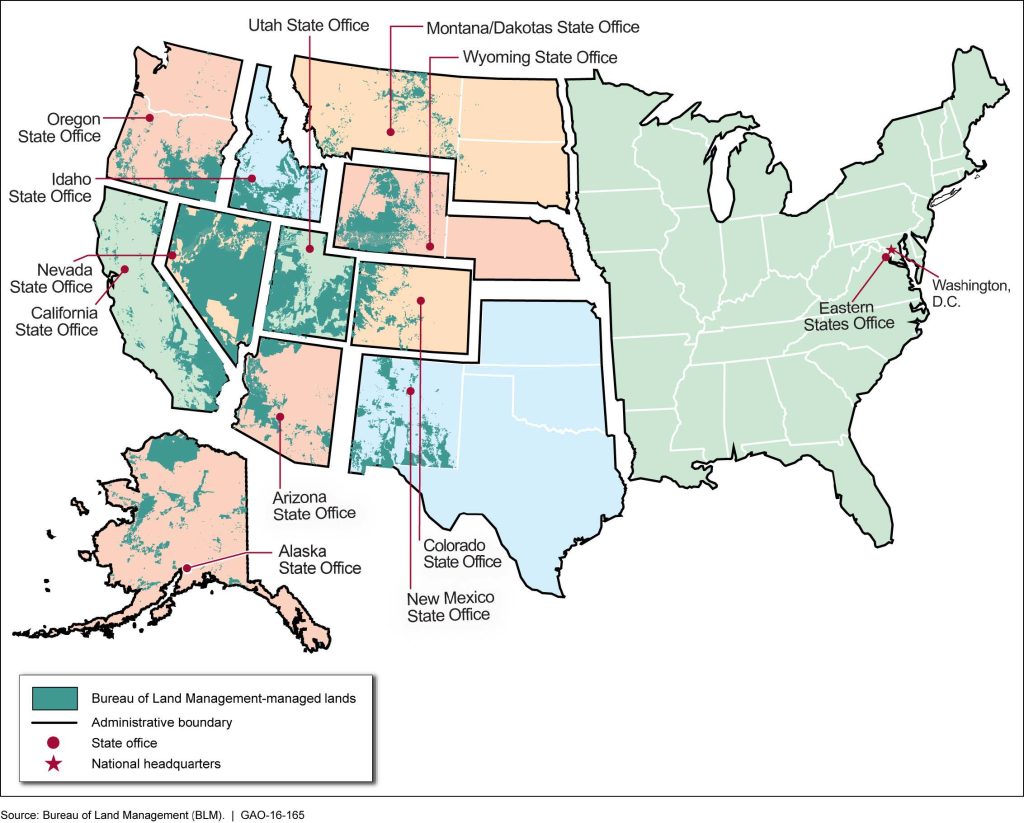- Utah sues federal government over control of 18.5 million acres.
- U.S. response due this week, November 21, 2024.
- Multiple states and organizations back Utah’s claim.
November 18, 2024 — This week, the United States must respond to Utah’s groundbreaking lawsuit challenging federal control over vast swathes of land within the state. The U.S. Supreme Court has set a deadline of November 21, 2024, for the federal government to file its response.
has set a deadline of November 21, 2024, for the federal government to file its response.
On August 20, Utah sued the federal government, questioning the constitutionality of its control over approximately 18.5 million acres of “unappropriated” land managed by the Bureau of Land Management (BLM). The case, assigned document number 22O160, asks whether the federal policy of perpetual retention of these lands, as embodied in 43 U.S.C. § 1701(a)(1), is unconstitutional.
A diverse coalition of states, counties, legislators, and organizations has rallied behind Utah, filing amicus curiae briefs to support its position. Their collective arguments emphasize constitutional principles, state sovereignty, and economic impacts.
to support its position. Their collective arguments emphasize constitutional principles, state sovereignty, and economic impacts.
States Backing Utah.
- Iowa and Eight Other States: Iowa, Alabama, Arkansas, Mississippi, Nebraska, North Dakota, South Carolina, South Dakota, and Texas argue that federal control over unappropriated lands violates Utah’s sovereignty and undermines constitutional principles. They urge the Supreme Court to hear Utah’s case, asserting its jurisdiction over disputes between states and the federal government.
- Idaho, Alaska, Wyoming, and the Arizona Legislature: These states highlight economic harms from federal land control, including lost revenue and stifled state authority over land-use decisions. They stress that federal dominance infringes on states’ rights and call for the disposal of these lands to restore state sovereignty.
- Wyoming Legislators: They contend that federal retention of lands violates the Equal Footing Doctrine, stifling state sovereignty, economic development, and tax revenue. They urge the Supreme Court to restore states’ rights over their lands.

Organizations and Leaders Joining the Cause.
- Pacific Legal Foundation: Argues that federal control undermines state sovereignty and the Constitution’s separation of powers. They assert that the government must dispose of lands not serving a federal purpose and urge the Supreme Court to restore the balance of power.
- Utah Association of Counties: Claims that prolonged federal control harms local economies and ecosystems. They emphasize Utah’s readiness for responsible stewardship and the negative impacts of federal mismanagement.
- Sutherland Institute: States that federal control removes decision-making from local hands, violating federalism principles. They highlight that states manage land more efficiently and tailor policies to citizens’ needs.
- Utah Public Lands Council and Agricultural Associations: The Utah Wool Growers Association, Utah Farm Bureau Federation, and county farm bureaus argue that federal retention undermines Utah’s livestock industry and rural communities. They emphasize the state’s readiness to manage the lands effectively.
- American Lands Council and Others: Along with counties, cities, organizations, and associations from multiple Western states, they contend that federal control violates the Equal Footing Doctrine and diminishes states’ sovereignty, civil rights, and economic opportunities.
- U.S. Senators Mike Lee, Mitt Romney, and Western Lawmakers: These legislators claim that federal control deprives Utah of tax revenue, legislative control, and full statehood rights. They urge the Supreme Court to hear Utah’s case and restore state sovereignty.
- Utah Legislature: Argues that federal retention infringes on the state’s sovereignty and legislative authority, hindering Utah’s ability to implement energy, transportation, grazing, and school trust land policies.
Key Legal Arguments Supporting Utah.
- Violation of the Equal Footing Doctrine: Federal retention of unappropriated lands disadvantages newer states like Utah compared to original states, infringing on the principle that all states have equal rights and sovereignty.
- Infringement on State Sovereignty: Prolonged federal control over vast lands undermines Utah’s ability to govern effectively and manage resources in the best interest of its residents.
- Economic Harm: Federal ownership restricts local tax revenue, land management, and economic development, negatively impacting rural economies and governance.
- Constitutional Overreach: The federal government’s policy is argued to violate constitutional principles, including the separation of powers and federalism.
- Obligation to Dispose of Lands: Advocates assert that the federal government must dispose of lands not serving a federal purpose, returning control to the states.
Awaiting the Federal Response and Implications for the Future.
As the November 21 deadline approaches, the nation watches closely. The federal government’s response will address Utah’s claims and could set a precedent affecting federal-state relations and land management policies across the country.
Utah’s lawsuit challenges longstanding federal land policies and raises questions about state rights and constitutional mandates. The outcome could redefine the balance of power between the federal government and the states, particularly concerning natural resource management and economic development.


Leave a Reply